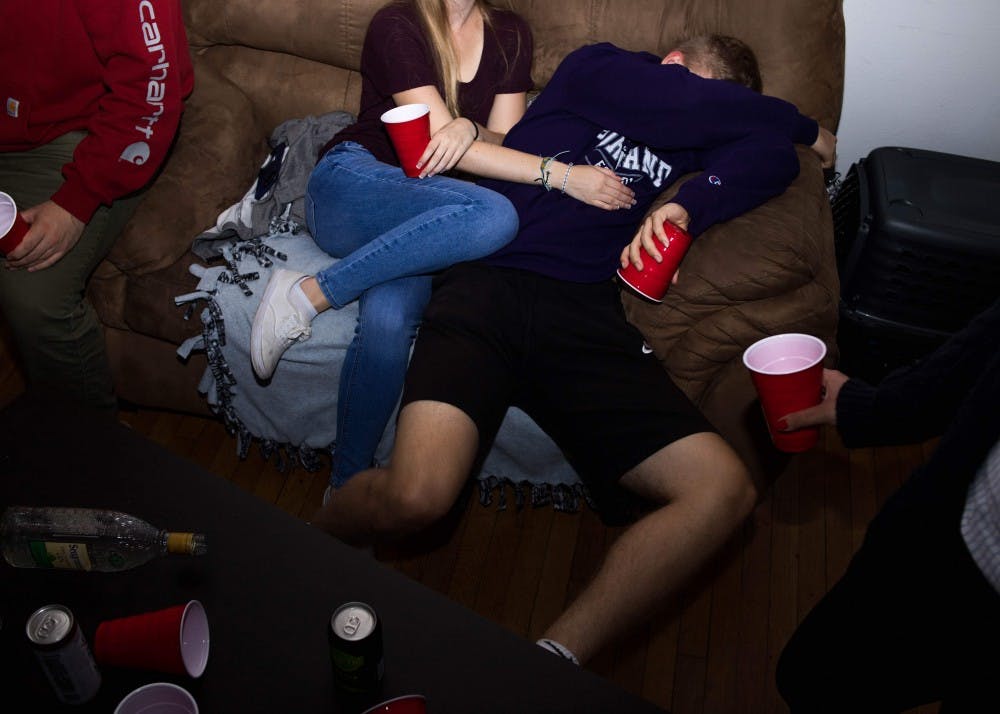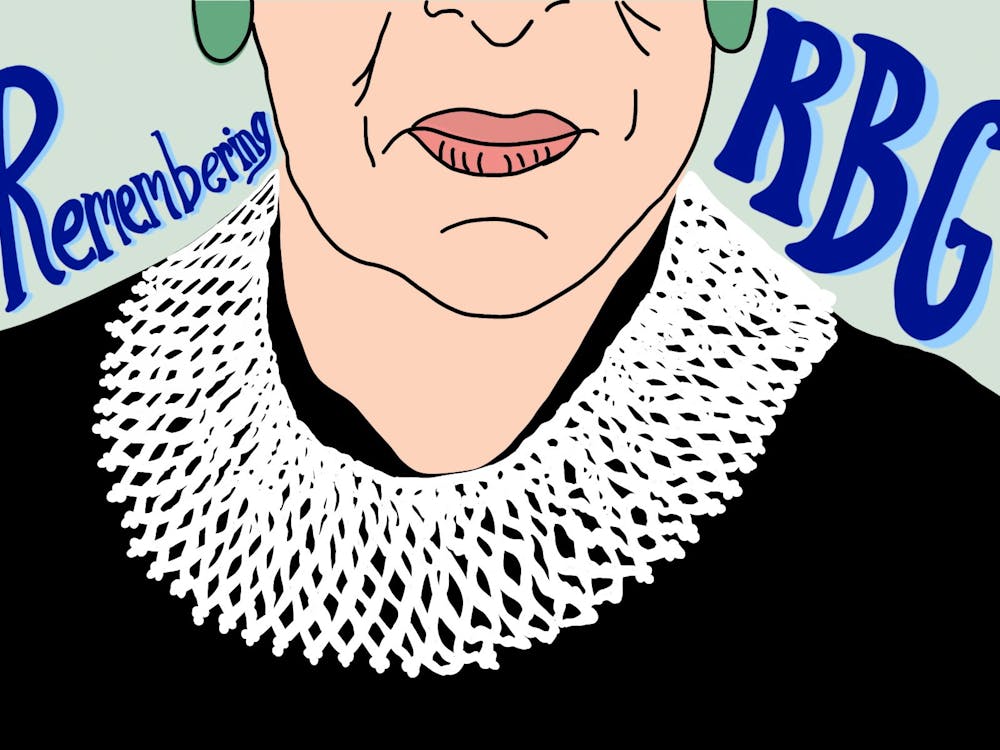Think about the mandatory sexual assault prevention training all students had to complete a few weeks ago (or maybe still haven’t completed). Did you pause and reflect on each question and part of the training? Did it radically change your understanding of sexual assault and consent?
We’d guess probably not. You more likely rushed through it when you had a break between classes, desperate to see how quickly you could complete it.
The University of Portland’s requirement to complete this online training is not inherently problematic, and the editorial board applauds the university for requiring some form of education about sexual assault. But, we also have to realize that it’s an opportunity for the university to conveniently check off a box and claim that it’s teaching and fostering conversations about sexual assault.
It’s likely the training is prompting reflection for some people about topics they’ve never considered. But, it’s absurd to think that you can gain a full, nuanced understanding of sexual assault, consent and healthy and safe sexual encounters from a one-hour training. Maybe this isn’t the exact goal of the training, but it needs to be our goal as students.
This isn’t to say that the university shouldn’t implement greater initiatives to teach us and encourage conversations about these topics, but educating ourselves and our friends is worthy. These conversations are especially critical considering that the Student Handbook would prefer we don’t have (and likely talk about) sex outside of “the Catholic Church’s teaching” that it should only happen “in a commitment to a total living and sharing together of two persons in marriage.”
Instead, we’re here to challenge you to commit to regularly have conversations about sexual assault, healthy and safe sexual encounters, and consent among your friend groups. We also urge you to confront the uncomfortable truth that your friends may be capable of sexually assaulting someone or may have already done so.
According to the National Sexual Violence Resource Center, “in eight out of 10 cases of rape, the victim knew the person who sexually assaulted them.” There’s no one definition or appearance of a rapist, and many people who rape fail to understand their behavior.
We’re sure that you consider your friends good people who you feel share your values. But this bond doesn’t exempt them from doing horrible things. If you learn that someone has acted in a way contrary to your shared values, then you need to confront the cognitive dissonance tempting you to overlook or excuse their behavior. That’s part of the reason why it can be hard to understand that our friends or people we know are capable of committing sexual assault. It often doesn’t look like the Chanel Miller case, in which Brock Turner sexually assaulted Miller behind a dumpster.
Instead, sexual assault can take a lot of other, seemingly less violent, forms, all of which involve inadvertently or intentionally violating a person’s autonomy. Because of the confusion around what constitutes sexual assault, we encourage you to have detailed, perhaps uncomfortable, conversations with your friends about sex, consent and sexual assault. We are much more likely to gain an accurate, complex understanding and reflect on these issues through informed conversations with people we trust than through hour-long online trainings.
While it may be uncomfortable, discuss in nitty-gritty detail the definition of consent. Talk about the fact that you should feel very able to say “no” (either by screaming “NO!” or through other words and/or actions that don’t indicate enthusiastic consent). Talk about how you shouldn’t feel that saying “no” will change your relationship with someone or give them more power over you at a later time.
Reflect on these ideas in a nonjudgmental way with your friends who don’t understand them or who try to make excuses for certain behaviors (“Oh, they’re a nice person, they wouldn’t do that!” or, “We all do things we regret when we’re drunk,” etc.).
Use cases in the news as prompts for discussion with your friends, and don’t let these issues disappear from your conversations the moment they also disappear from the news cycle. Ensure that regular conversations about sex and consent are topics you feel comfortable talking about with your friends. If a friend hints at or mentions that “something happened,” don’t brush it off. Ask them how they felt, what happened, and if it felt safe and consensual.
We also talked to Meghan Powers, co-president of Students Against Sexual Assault (SASA), who outlined some ways to talk to a friend you suspect has sexually assaulted someone. She explained that getting accurate information from the accuser and any bystanders is key. You also have to take into account if your friend, who is the accuser, wants you to approach the accused, and if so, how much information your friend wants you to share.
Powers also said that starting the conversation with your friend who is the accused needs to happen in a non-aggressive manner. Present the information to them and emphasize that, because you care about both people involved, you want to understand what happened.
She said that your reconciliation with the accused friend is possible, but she noted that it is highly dependent on the situation and that it is difficult when considering your friendship with the accuser.
The editorial board thinks it’s critical to determine if your friend actually understands what they did. Make them understand the seriousness of what they did, that their actions are unacceptable, and that you are there to support the survivor. Educate your friend on the matter, support them in reflecting on it and changing their behavior, but also know that it’s understandable if you want to change or end your friendship with them.
The purpose of these uncomfortable conversations is to make this understanding part of your and your friends’ values. This means that even when you’re drunk, your values, including your understanding of consent and safe, healthy relationships, don’t suddenly fly out the window.
Yes, alcohol lowers your inhibitions, and you may say or do things that perhaps the sober you wouldn’t. But, if you get drunk and can no longer understand consent, you probably don’t have a full grasp on the concept and can’t comprehend it when you’re sober either. Alcohol and intoxication can bring up a behavior that may be repressed the rest of the time, but it doesn’t create that behavior in the first place.
Chanel Miller summed up the matter when she stated in a recent interview, “We say alcohol is the cause, but to me it’s such a small way of thinking. Alcohol could never be the root of something that is part of such a greater pattern: when you look at the thousands of cases (of violence against women), the common thread is not that we are drinking too much. The fact that we continue to minimise and rationalise violence is so insanely damaging.”
In fact, even in our own student handbook, it says that “being intoxicated or impaired by drugs or alcohol is never an excuse for sexual or gender-based harassment, misconduct or violence.”
You can choose to continue these conversations with your friends (although that doesn’t undo the hurt they’ve caused another person), or maybe it’s time to reassess your friendship with them. Having these conversations and acting on them doesn’t mean engaging in a witch-hunt to zealously cancel anybody suspected of sexual assault. But it does mean not supporting people who fail or refuse to understand, even after conversations and education, the impact of their actions.
We urge you to make time to reflect on your values and those of your friends, and evaluate your own moral compass and understand who you are harming and who you are protecting through your actions.
Have something to say about this? We’re dedicated to publishing a wide variety of viewpoints, and we’d like to hear from you. Voice your opinion in The Beacon.








